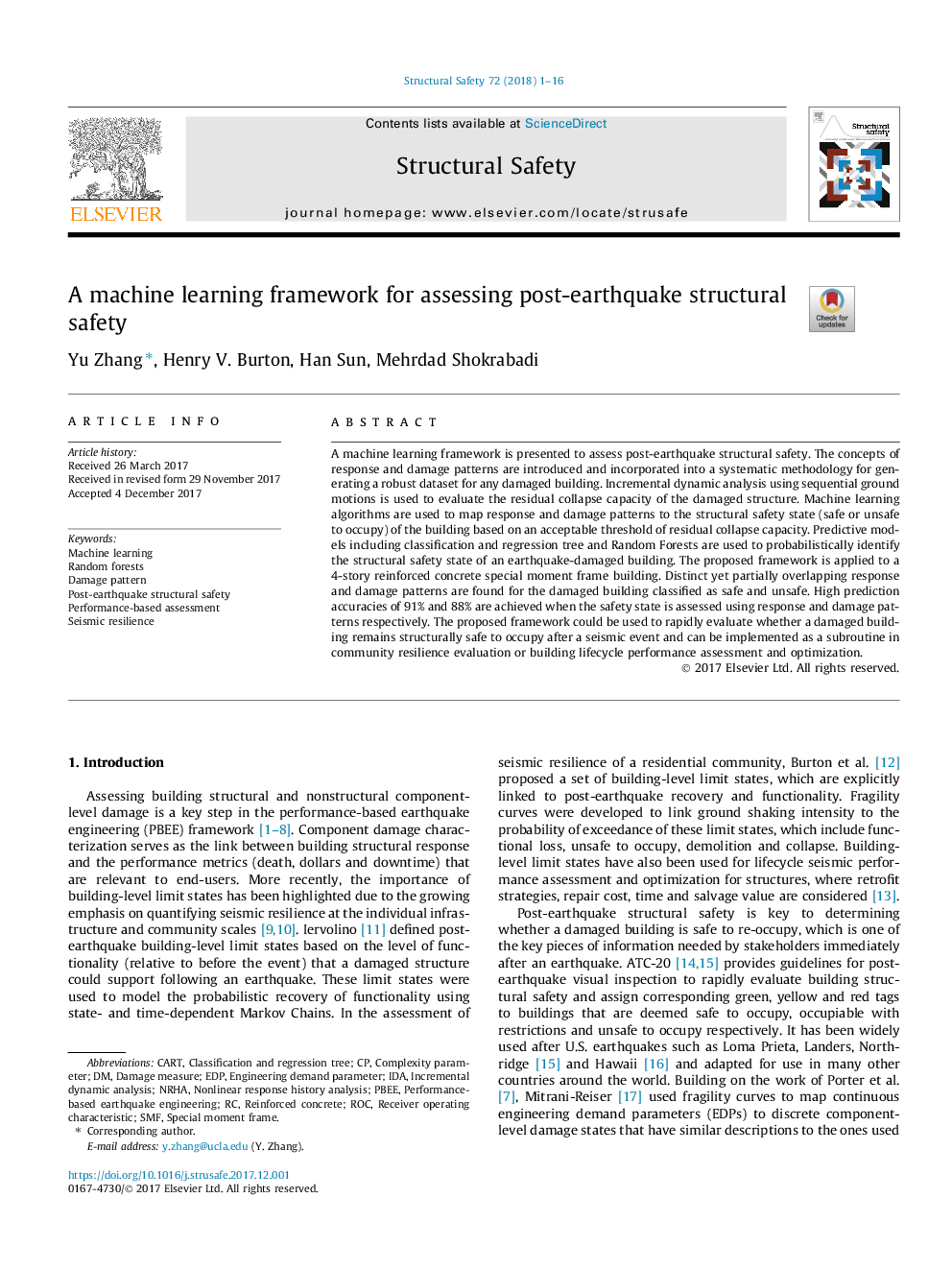| Article ID | Journal | Published Year | Pages | File Type |
|---|---|---|---|---|
| 6774051 | Structural Safety | 2018 | 16 Pages |
Abstract
A machine learning framework is presented to assess post-earthquake structural safety. The concepts of response and damage patterns are introduced and incorporated into a systematic methodology for generating a robust dataset for any damaged building. Incremental dynamic analysis using sequential ground motions is used to evaluate the residual collapse capacity of the damaged structure. Machine learning algorithms are used to map response and damage patterns to the structural safety state (safe or unsafe to occupy) of the building based on an acceptable threshold of residual collapse capacity. Predictive models including classification and regression tree and Random Forests are used to probabilistically identify the structural safety state of an earthquake-damaged building. The proposed framework is applied to a 4-story reinforced concrete special moment frame building. Distinct yet partially overlapping response and damage patterns are found for the damaged building classified as safe and unsafe. High prediction accuracies of 91% and 88% are achieved when the safety state is assessed using response and damage patterns respectively. The proposed framework could be used to rapidly evaluate whether a damaged building remains structurally safe to occupy after a seismic event and can be implemented as a subroutine in community resilience evaluation or building lifecycle performance assessment and optimization.
Keywords
IDAEngineering demand parameterSpecial moment frameEDPCARTROCSMFPerformance-based assessmentDamage patternSeismic resilienceReinforced concreteNonlinear response history analysisIncremental dynamic analysisRandom forestsClassification and regression treePerformance-based earthquake engineeringreceiver operating characteristicMachine learning
Related Topics
Physical Sciences and Engineering
Engineering
Civil and Structural Engineering
Authors
Yu Zhang, Henry V. Burton, Han Sun, Mehrdad Shokrabadi,
